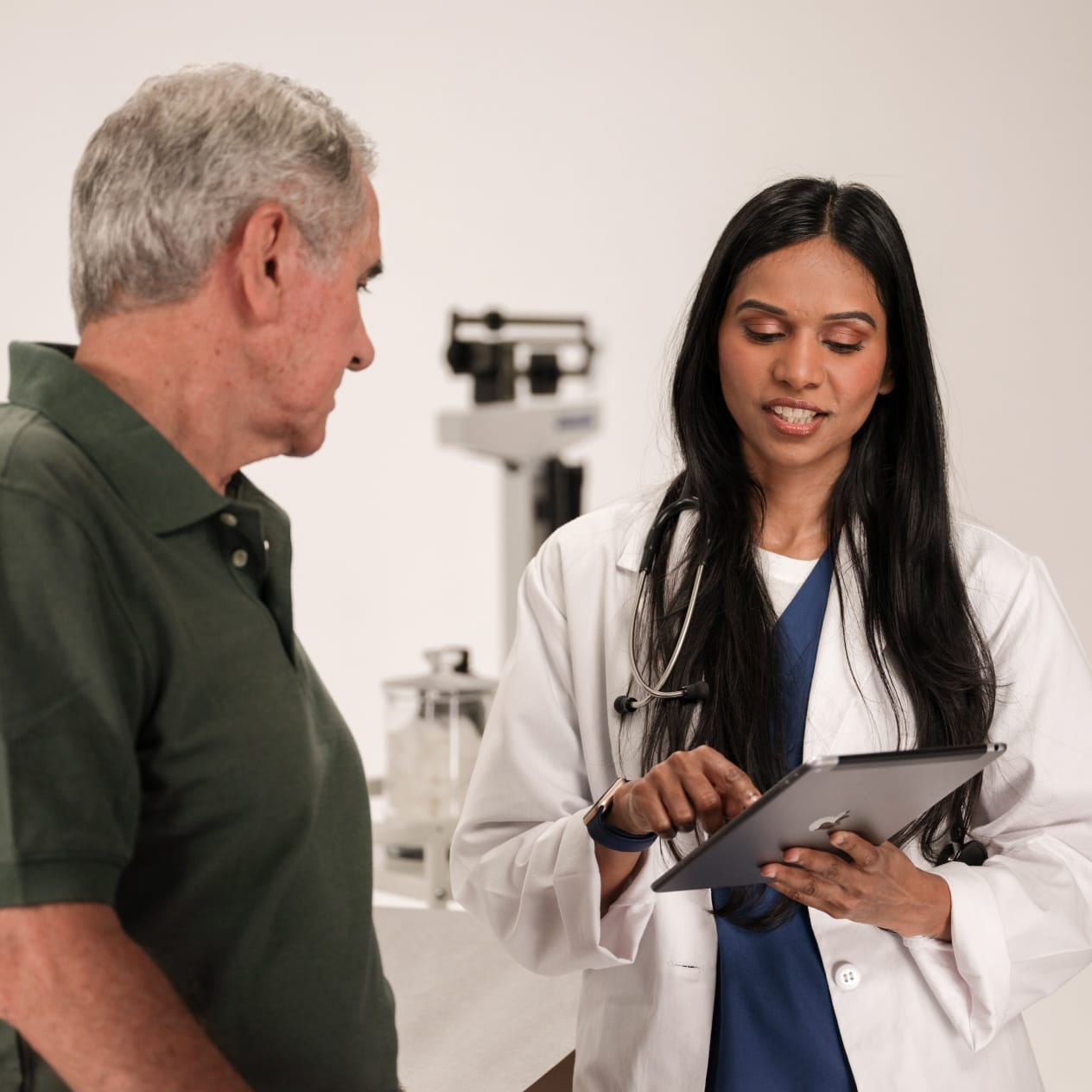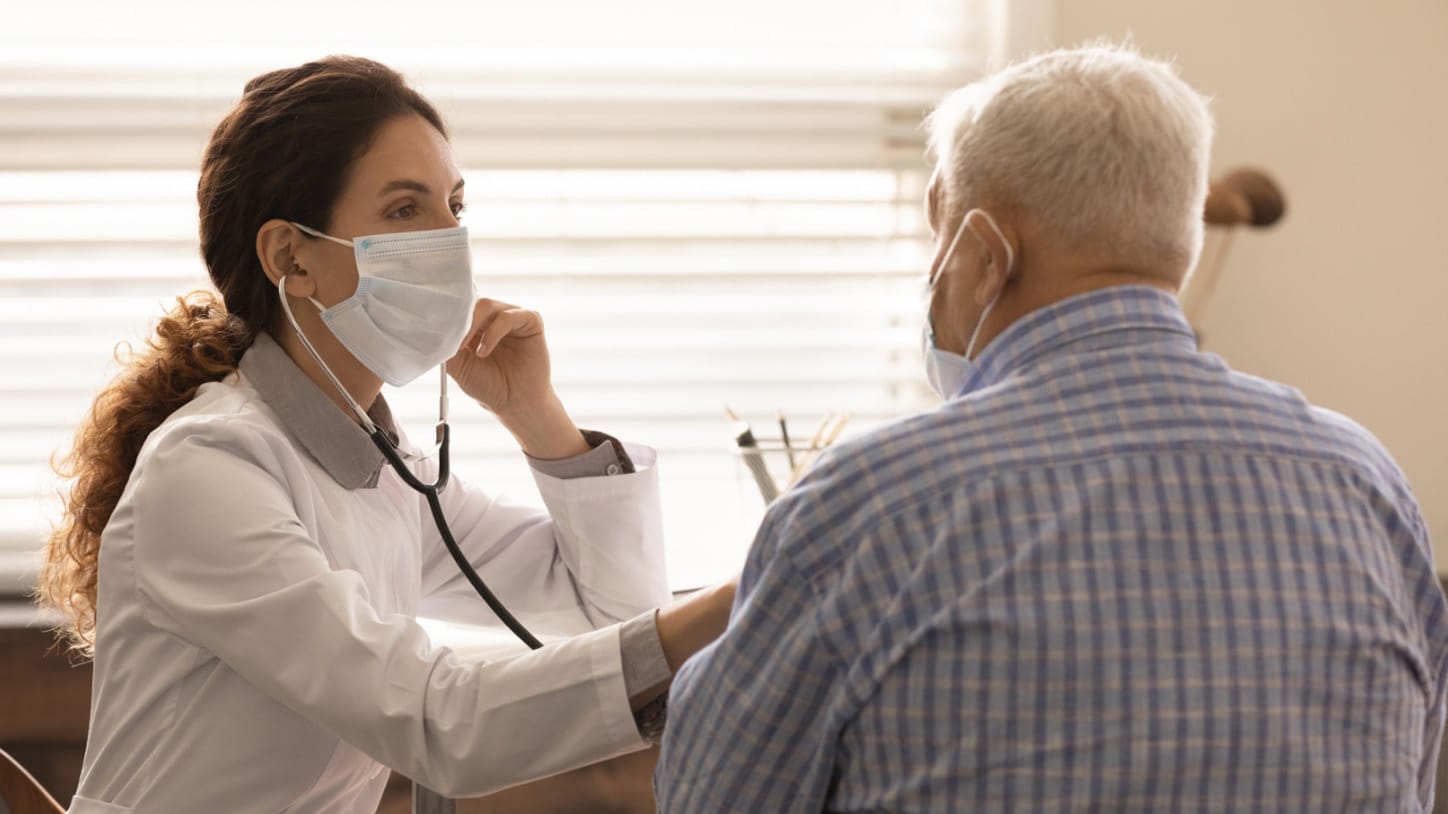Leverage technology for the non-tech savvy
“My main concern has always been patient engagement,” explains Dr. Spriggs. “If patients can’t come to me, I need to come to them — it’s as simple as that. I want them to be totally involved in decisions surrounding their treatment, which requires good communications. If they’re worrying about transportation, mobility, costs, or other non-medical factors, they aren’t able to concentrate on doing their part to get better or communicate with me so that we function as a team.”
Many of Dr. Spriggs’ patients are elderly, isolated, and not comfortable using computers. Many don’t have smartphones. Others rely on younger relatives to do internet-related tasks. He therefore needed efficient systems that are easy to use.
Kareo for a logical structure
Dr. Spriggs’ first decision was to implement Kareo Clinical, Tebra’s EHR solution. “I had used Kareo before and was very happy with it. Still, I researched other EHRs carefully. I liked that Kareo is very easy to use, and that its features are totally integrated.”
He also appreciated the platform’s intuitive architecture. “Unlike other EHRs, Kareo is set up the way a physician is trained to think. Most EHRs have a hodge-podge of about 40 different screens, where you jump around to find what you want. Kareo, on the other hand, mimics the way providers solve clinical problems. It starts with patient engagement — who the person is, what their story is, who lives in their house, whether their parents had cancer, and so on. Then you proceed to diagnosis and tests. With Kareo, the encounter flows like a well-plotted movie, instead of feeling like you’re filming one scene at a time with no logical order.”
Was Kareo hard to implement? Dr. Spriggs laughs. “I’ve worked with at least 10 other EHRs, and you couldn’t teach yourself to use a single one. But with Kareo, I can train someone in an hour. A younger person can teach themselves without even one minute of instruction. The dashboard is completely intuitive. It’s impossible to do anything wrong. I’ve always been able to find what I want in seconds. That’s saying something.”
Tebra for a three-in-one approach
When Dr. Spriggs is in the office, he relies on Kareo Clinical for intake, demographics, scheduling, electronic notes, prescriptions, and more. During telehealth visits, he uses Kareo’s secure technology. For in-home visits, he accesses Kareo records remotely through the cloud.
“Each type of visit offers different patient benefits. In the office, I can view conditions with my own eyes. Telehealth also has its advantages in patient convenience and time-savings, especially during COVID. When I go to a patient’s home, I might notice conditions that are detrimental to the patient’s health, or gain other insights that would never open up to me otherwise. That’s why I am so passionate about using all three modes of care, and having a solution that works with all three. I even selected my chronic care and phone systems because they integrate with Kareo,” Dr. Spriggs says.
“Kareo gives me a sweet spot between face-to-face encounters in the office, telehealth visits via computer or even rotary phones, and trips to the patient’s home. […] I can use Kareo no matter how I am seeing a patient, keep detailed records all in one place, and use technology to streamline my practice.”
He likes Kareo being cloud-based, too. “With your data in the cloud, you can get to it with any device at any time. Plus your data is secure. I don’t see any disadvantages at all to using the cloud.”
Building a client base
When Dr. Spriggs was ready to open his doors, he needed to attract patients. But he’s a physician, not a marketer or social media strategist. “It’s not like you can put up a big billboard or run full-page ads in the local paper,” he says.
Even though he had a basic website, all of his patients initially came from referrals. “There was no way to search and find my clinic on the internet. If you Googled me, you saw all the places I’d worked before. But you couldn’t even tell where my practice was located. It was a hot mess,” he remarks.
He had similar problems with patient ratings. “I’ve always had exceptional ratings, but didn’t know how to go about making them public.”
PatientPop for practice growth
Dr. Spriggs turned to PatientPop, a Tebra practice growth solution. It created a website with search engine optimization (SEO) for discoverability. It also now runs the clinic’s online scheduling system, offers online payment options, and generates reviews. The results have been dramatic.
“PatientPop offers digital capabilities, but doesn’t interfere with old-fashioned ones. The website they designed drew in over 1,500 new visitors and 500+ organic website connections in just two months. It generated 70 new patient reviews, all of them five stars. I may not understand SEO. But it sure helps people find me! My new patient acquisitions have doubled. PatientPop does a phenomenal job. I wouldn’t have made it without them,” he says.
Boost patient engagement
One of Dr. Spriggs’ main goals in starting his own practice was to engage patients as partners, allowing them to have more control over their treatment options, thereby improving outcomes. “Clinical practice isn’t all that complicated after you’ve been doing it a while. But what takes everything to the next level is the quality of your interactions with patients. Not only does more engagement make sense, but it also fits my personality. So I try to have as many methods of communication as possible. You could say that patient engagement is my baby. But I wasn’t sure how to use technology to make it happen.”
Kareo Engage and portal
Dr. Spriggs was excited when he learned about Kareo Engage, Tebra’s holistic communications solution, and implemented its patient portal. “I encourage every patient to sign up for the portal, and put an alert on their chart when they do. They can use it to make appointments, get lab results, send me emails, and get reminders. It saves everyone a lot of time,” he explains.
“Fortunately, Kareo’s portal is really easy to use. If needed, my secretary acts as a navigator, helping patients who are uncomfortable with technology. […] I wouldn’t want to discourage them by asking them to do something that was too hard. But they can receive so much valuable information through the portal. It’s worth them giving it a try.”
Patients can use the portal to set their own appointments. “Most of our appointments still come in through the phone, although the demographics are shifting. We’re getting more online requests for appointments every day, in large part due to PatientPop. Patients are finding me online, submitting a request, and then getting a call from us for confirmation. It works great. About 20% of all new appointments are generated from the website,” notes Dr. Spriggs.
“The bottom line is that I will use whatever technology works best for the individual patient. Online portal, telephone, email, voicemail, text messaging, digital, non-digital — sometimes patients just drive up to the office unannounced. I want to do whatever it takes to keep the doors open and welcome people,” he says. “It’s the same with patients paying their bills through the portal. They can click to pay. They can write a check. We even get dollar bills coming out of brassieres. However they want to give it to us, we’ll take it,” he jokes.
Kareo telehealth
Because he opened his clinic during the COVID-19 pandemic, Dr. Spriggs needed to adopt telehealth in a hurry. “Luckily for me, Kareo includes a seamless telehealth feature. Everything is there in one place. I just log on, split the screen, make notes on one side, and do the audio/visual telehealth conference on the other — right from my laptop.”
A brighter (digital) future
Dr. Spriggs is launching a new nonprofit, again using the Tebra operating system. He also recommends the joint solution to other direct practitioners.
“You can’t not have electronic records, an integrated online presence, digital communications, or social media. And you can’t have them all on different platforms. A seamless system with Kareo and PatientPop is the only way to go in this day and age. They make it possible for a family physician in independent practice to succeed.”



